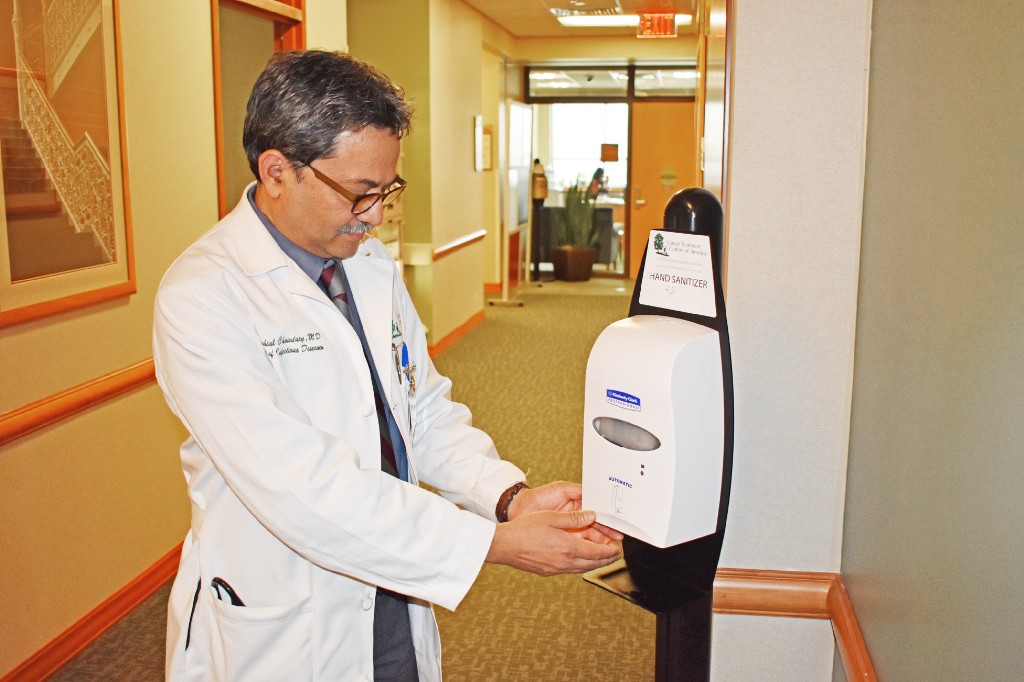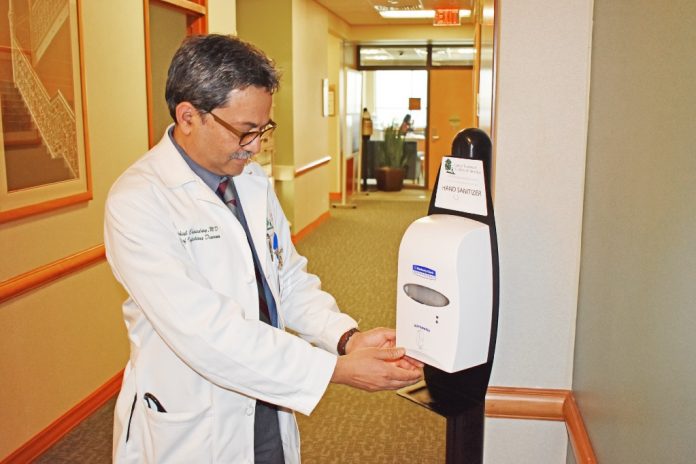A doctor from Cancer Treatment Centers of America in Philadelphia gives advice to how caregivers and patients can avoid infection during the allergy season.

When Sarita Tobias was first diagnosed, her sister Jacintha Finch packed up her bags and moved in with her. She didn’t just move a few blocks over, though. She crossed islands.
Tobias lived on St. Thomas, and Finch lived on St. Kitts. The sisters travel to Cancer Treatment Centers of America in Philadelphia for treatment.
They both underwent major life changes, but sometimes it’s the smaller things one doesn’t consider about cancer patients that can have the greatest impact.
“Last year, I got a cold,” Tobias said.
What would just be an inconvenience to most people could prove to be fatal for cancer patients. According to Dr. Mashiul Chowdhury, more than 60,000 patients get admitted to hospitals due to getting infections derived from common sicknesses like a cold or the flu. One out of 14 of those patients dies from a simple infection. CTCA had no infections last year.
Typically around seven to 10 days after receiving chemotherapy, white blood cells are at a critically low level. This makes patients abnormally susceptible to getting sick and facing dangerous consequences. It can also complicate the patient’s living situation — if a caregiver gets sick, Chowdhury recommends staying as far away from the patient as possible, even making other living arrangements temporarily, if possible.
“If cancer patients have a fever or feel unwell, such as being fatigued or weak, they should immediately contact their doctor, even if it’s after hours,” Chowdhury said. “During this time just fever alone is enough for a serious infection.”
Tobias and Finch took extra precautions to stay away from each other once Tobias got sick. Tobias got a lot of rest and took a lot of vitamins to help get better more quickly.
Though the sisters are currently living by themselves, Finch said she would wear a facial mask if she ever got sick, and would be certain to keep her hands clean.
Incidentally, that’s the top advice Chowdhury has for caregivers.
“Hand hygiene is the most important thing you can do to stay healthy,” he said.
Chowdhury breaks down preventing sickness to the 3 P’s: prepare, prevent and protect. A thermometer should be handy at home to take the patient’s temperature to measure a fever. Caregivers should keep a close eye out for any kinds of common sickness symptoms. In case a patient does have to go to the doctor, it is essential to know what kind of chemotherapy they received, and when.
To prevent infection, that’s where Chowdhury recommends hand hygiene. Bacteria and fungi that we carry naturally and transmit from person to person can be the biggest culprits behind sickness. Chowdhury said caregivers and patients should frequently use soap and warm water, and avoid crowded places during the time of chemotherapy.
He also said to avoid buying fresh vegetables, because they can also carry germs.
While the nation is wrapping up a deadly flu season, the weather is now transitioning to allergy season. It’s important for caregivers to take extra care to differentiate between allergies and having a cold, and pay mind to prevention strategies.
“People feel like they are safe after flu season is done, but that’s not necessarily the case,” Chowdhury said. “Allergies happen any time of the year.” ••
Cancer Treatment Centers of America is located at 1331 E. Wyoming Ave. To learn more about the center, visit CancerCenter.com





